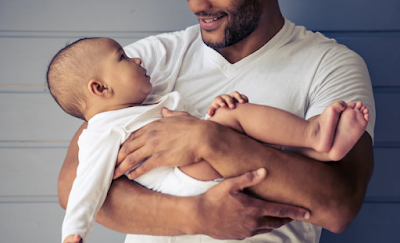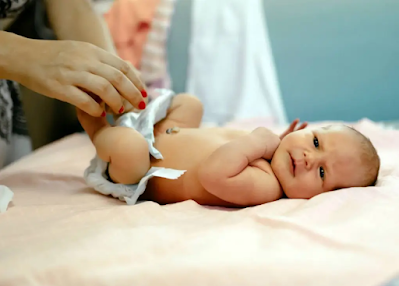The first 10 days of baby care are crucial to their development and will continue to be so for the first year of their life. Baby's adorable presence in our house brings a smile to my face, but I can do nothing about their adorable cries — or lack thereof. If your baby is less than one week old, it's never too early to start learning about their health and safety.
Holding
Holding your baby is the best way to bond with them. It's a good way to play with and interact with your baby, and it's also a good way to get your baby used to be held.
Holding a newborn baby is not like holding an older child. Babies are very sensitive and can easily get upset if you hold them incorrectly or for too long.
Even though you may be thinking that holding your baby is easy, it can be difficult at first. Here are some tips on how to hold your newborn safely:
Holding Position: Hold your newborn on its back in a semi-sitting position, which is between a half-sitting position and a fully upright position. If you have more than one newborn at once, hold them together in one arm behind their neck so that they aren't fighting over who gets what part of your body.
The Right Amount of Time: Holding time should last no longer than 20 minutes per day for the first 10 days following birth because babies need time to adjust their muscles, lungs, and bladders before they can handle any strenuous activity.
Bathing
Babies should be bathed once a day after their first bath, which is about the time they start to wet themselves. Babies can be bathed in a sink or tub, using water warm enough to comfortably immerse their bodies. The average amount of water needed for bathing depends on the age and size of your baby. For example, newborns need only 1 teaspoon (5 ml) per pound (0.5 kg) of body weight while toddlers require 2 teaspoons (10 ml) per pound (0.5 kg). Babies younger than 2 months old should not be bathed in cold water because the shock could cause them to develop hypothermia.
Baby wipes are often used after bathing but should not be used instead of a washcloth or sponge to clean up spills because they do not contain any soap and can irritate sensitive skin.
Diaper Change
Newborns can go up to three days without a diaper change. (The average is two.) But after the first week, most babies begin to need one every few hours or so. The timing of these changes depends on several factors, including how often the baby urinates and poops and how much urine she produces.
It's important to change diapers often because filthy ones can cause urinary tract infections and skin rashes — even in healthy babies. If your baby has a wet diaper, gently place her on her back and remove the diaper from her bottom with two hands. Do not pull it off — this can lead to tears in the skin or umbilical cord strangulation. Diapers should be put away immediately after changing them; otherwise, bacteria from old diapers can multiply in trash cans and bathrooms throughout your house.
Comforting
The first few days are all about calming your baby. A newborn is a very sensitive and impressionable time, so it’s important that you don’t do anything that might stress out or scare him. For example:
Don’t try to put the baby in a car seat or stroller until after he has been checked out by his doctor. This can lead to an injury or even death for the baby.
Don’t hold your baby too long if you’re breastfeeding. The longer you hold your baby, the more likely he is to cry and become upset with being held.
Don’t pick up your baby too much or carry him around too much right away — at least not until he is stronger and more able to stand on his own.
Feeding
Breastfeeding, bottle-feeding, or using formula all have their advantages and disadvantages, but none has been found to be better than the others.
Breastfeeding: Breastfeeding is the most natural way for your baby to get nutrition. It's good for babies' health, and it's also good for mothers' health. Breast milk contains antibodies that protect against some infections, which means that breastfeeding helps prevent illness in babies and mothers alike. Your doctor will recommend how many times a day (and how long) you should nurse your baby.
Bottle-feeding: Bottles are great too! But they don't contain special antibodies that help protect against illness. If you're bottle-feeding your baby and he gets sick soon after being weaned off the breast, he may be at risk of getting an infection if he doesn't take in enough iron and other nutrients from formulas made with cow's milk (which contains less iron than human milk). Also, bottles aren't very convenient when you're away from home or busy with other things (like work or other kids). If this happens regularly.
Freshening Up
The first 10 days of baby care are all about freshening up and getting ready for the big changes that lay ahead. You may feel like you need a break from your old ways, but don’t get too comfortable — these are just the first few days of baby care, not the last!
Once you’ve had some time to adjust to your new role as a parent and begin learning how to be a good one, it’s time to get back into the swing of things. It can be hard to know where to start with taking care of a newborn, but here are some tips you can use immediately to start making your life easier.
You can expect that your baby will stay close by for at least several weeks after birth. Babies who have spent their entire lives in the womb have no concept of distance or space and often seem more content when touching someone or something familiar than when left alone. Your baby will also be sleeping much more than he did before he came out of his mother’s body. While he may still be able to hear what is going on around him.
Wipes
It's hard to believe that a sanitary wipe could be so important, but they are. A newborn's skin is very delicate and can't handle alcohol, perfume, or lotion. Wipes work great at keeping the baby clean without irritating their sensitive skin. They're also great for cleaning up messes and getting rid of germs.
Babies can get diaper rash from any number of things, including yeast infections and excessive moisture in the diaper area. Wipes can help with both of these problems as well as get rid of any bacteria on the baby's bottom. They're also good for cleaning up messes like spit-up or formula accidents!
The best wipes for newborns are unscented because babies don't have a sense of smell yet so you don't want to irritate their sensitive little noses!
Sleep
Sleep is a mainstay of baby care, but what constitutes "sleep" is not always clear. You may find that your baby is awake every few hours and will sleep for short periods of time. Or, you may find that he sleeps every night and only wakes up once a night.
While it's true that some babies require more sleep than others, most do need six to eight hours each night. Some babies will fall asleep on their own in the crib or swing without any assistance from parents or caregivers; other babies need to be rocked or held close to help them fall asleep.
If your baby doesn't seem to be getting enough sleep at first, try taking him out of his crib for 10-15 minutes every two hours until he seems comfortable on his own in his crib after that. If he continues to wake up at night, try placing him back in his crib before he falls asleep again so that he can learn how to settle himself back down easily during the night.
Formula Feeding
The formula is the first food for babies, and it's important that you start your baby on formula as soon as possible. It's very easy to mix, and can be easily warmed up in a bottle.
At first, your baby will probably take only one or two sips at a time. But after a few days, you will notice that he wants more than just small amounts of formula. The amount of milk that your baby needs will change as he grows.
If you're breastfeeding, don't worry if your baby isn't drinking much breast milk after a few days. He might need some extra help from his bottle until he gets used to it.
Umbilical cord care
Umbilical cord care is a very important aspect of newborn care. It is important because it helps prevent infection and can save a baby's life.
The umbilical cord is thin, but it contains blood vessels and nerves which are very important for the newborn's health and development.
Umbilical cord care begins at birth and continues throughout the first 10 days after birth. During this time, you should:
Change your baby's diaper every 2 hours or as often as necessary. Use clean diapers only.
Wash your hands before touching your baby's skin, especially if you are in contact with his/her mouth or eyes.
Make sure that nothing comes into contact with your baby's umbilical cord or navel area (the space between the navel and the pubic bone). This includes rings, watch bands, necklaces, and other jewelry that might have come in contact with the navel area during delivery.
Conclusion
To summarize, the first 10 days are all about making you're newborn feel safe and loved. Even though you are already determined to be a great parent, you have a lot to learn about your baby's behavior and needs. The important thing to do is to never get overwhelmed because it will only take a few moments of your time each day to pay attention to the little details of your baby that can make all the difference in his/her life.
You can also read : Peoplesnewsbd24
















0 Comments